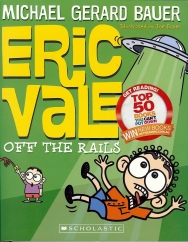When her second verse novel, Star Jumps, was released, Iasked author Lorraine Marwood to guest blog on a blog I’d just started, focussing on the verse novel form. That particular blog is now defunct (I came to realise I really didn’t have time to devote to multiple blogs) but I came across the interview today and thought it was well worth publishing here. Since the interview was published, Lorraine has had more poetry collections published, as well as prose, and has won the prestigious Prime Minister’s Literary Award for Star Jumps. Anyway, here’s the original post.

Why use this genre as a way of story telling?
Years ago when I finally gave into my life long desire to write, I could only snatch a few morning moments before the cowshed work, before getting the six kids ready for school, or after the evening meal; to write down lines. I trained myself to write quickly- poems- maybe three a day about details that happened, words spoken, emotion expressed through the rural landscape. Poems were attainable, satisfying and I began sending them out into the literary world of journals.
Many were published. But I still wanted to write for children. I began to write poems specifically for children and many of these poems found their way into the journals of School Magazine New South Wales.
After gathering a collection of poems together, Five Islands Press published one volume ( Redback Mansion) and then later a second ( that downhill yelling).
Now, I wanted to evolve a longer piece of writing. I wrote a short prose verse poem about a picnic in a paddock. I loved the intensity of feeling and atmosphere and setting that prose poetry could give. I wanted to write a novel. But how to take the plunge?
Of course I’d read Sharon Creech’s novels and Karen Hesse’s novels and always enjoyed Steven Herrick’s work. How could I find my own voice in the verse novel?
I researched my topic: I researched human accounts of gold finding and the turmoil and untold stories that were humped across the gold fields. Then I found a voice, an entry, an immediate creation of suspense and atmosphere that I wanted. The striking of atmosphere in the first few words of Ratwhiskers and Me’ was the steering of the story trail.
‘Boy, they call me boy.’
Yes! I was on my way to the exploration of theme and plot and voice. I could use what is kinda instinctive in my writing: my poetics.
The verse novel became an atmospheric device in itself. It is very conducive to the playing out of sensory detail, and the propelling of the bare bones of the story. And while it is shorter in words than an ordinary novel, it strips back the verbiage and puts the reader right there emotionally.
Recently two students from Latrobe Uni were researching the editing process and came to ask me a few questions. They highlighted the way I make a narrative of the verse novel rather than individual poems, and for me that was a point to ponder. I make this distinction because I do naturally write so much poetry. I wanted to experiment with form. And my version of the verse novel is one long poem.
Because my writing is always evolving, the subject matter of the verse novel itself dictates the way a book is written.
Star Jumps, my recently released novel allowed a more poetic vista of details like the ghostling breath of the cows on a cold frosty night. I wanted to convey to non- farming children, as much as possible; a real life snapshot of a farm at its most busy period- the calving season. I wanted to show the drought in action and the decisions that are constantly being made in many rural communities.
My words made flesh and blood of Ruby as she took us through her farm life and showed us hope played out. Only the genre of the verse novel allowed me to recreate the emotion of farming without the didactic and sentimental picture so often stereotyped as farming.
Thanks so much for sharing, Lorraine. You can visit Lorraine Marwood online at http://www.lorrainemarwood.com/.








